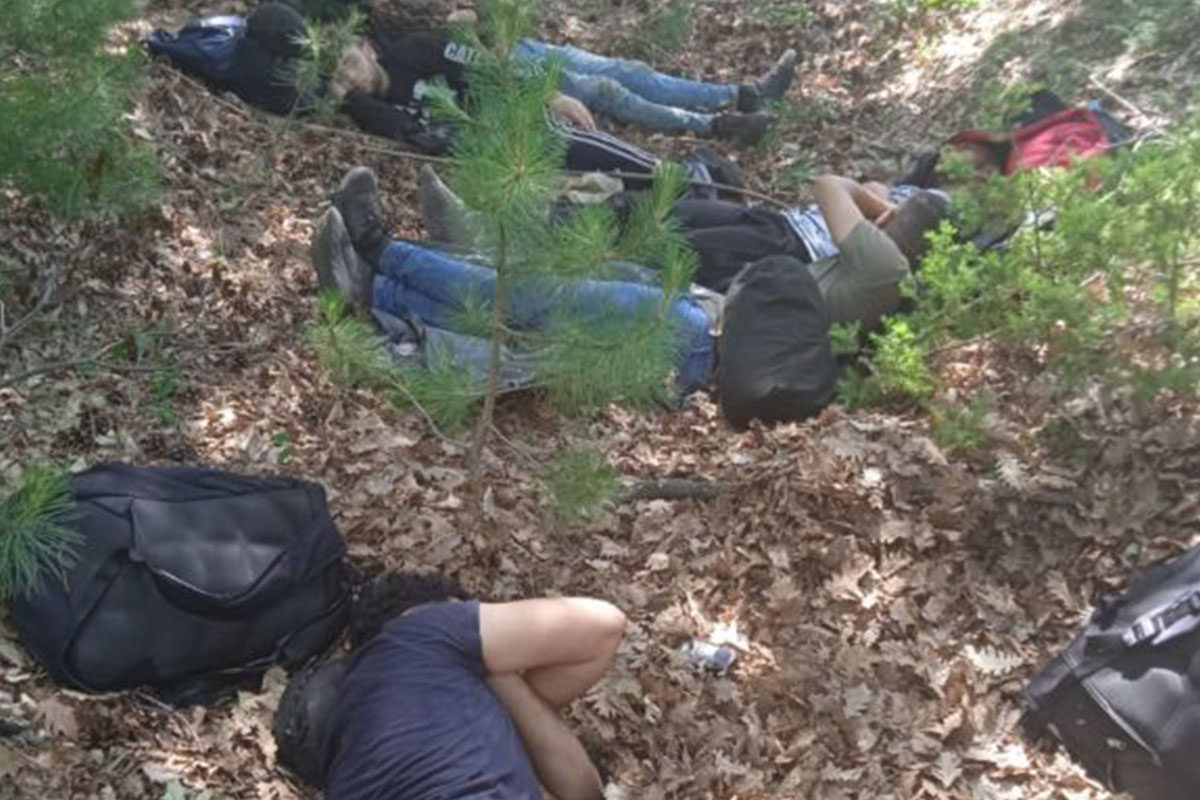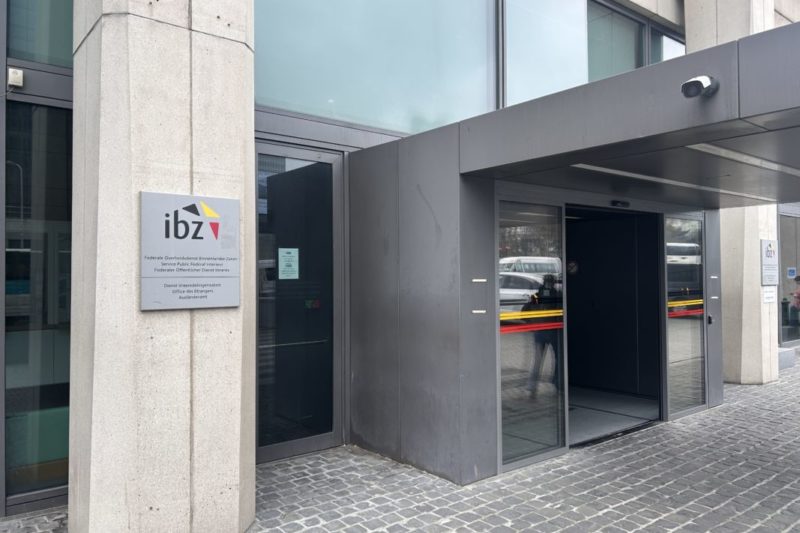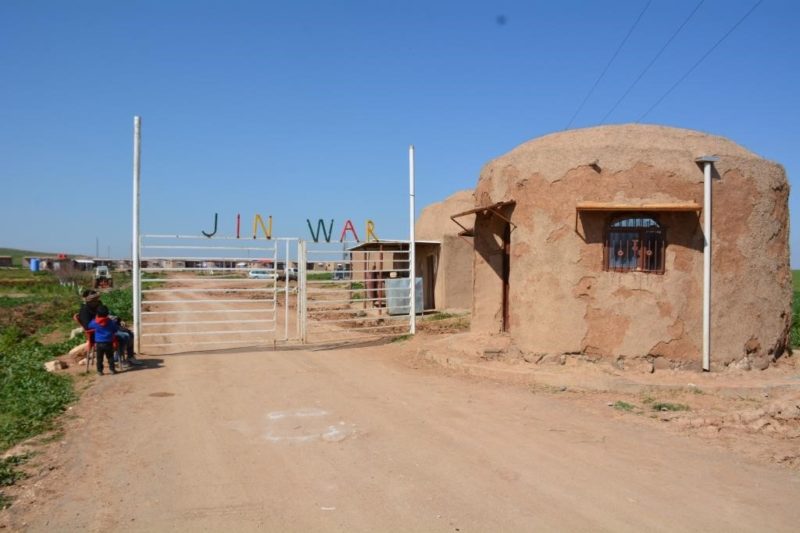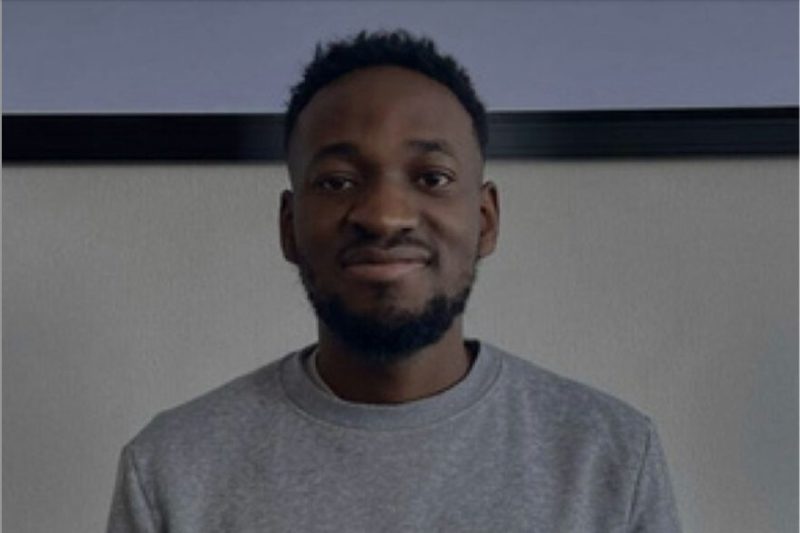Palestine: Fleeing home to save her life (7)

Omayma Masoud, a journalist with more than 20 years’ experience, was forced to leave her native Palestine after being threatened by Hamas. By dedicating her life to the profession and to the fight for women's rights, she feels she signed her own death warrant. In this seventh part of her story, she meets a grieving mother during another attempt to make it to Greece.
Intermittent laughter could be heard before two little faces peered out of the open door – the faces of two little girls. I have never seen faces more beautiful than those, with their green eyes. The angelic faces of two Syrian girls who preceded their parents’ arrival. Their mother was pregnant in her ninth month with a huge belly but she was also astonishingly beautiful.
The two girls couldn’t stop laughing, talking, screaming and running after each other among the people who crowded the room at the gathering point where people due to be trafficked come from different places to wait for the to start the trip towards Greece. The men had to go out from the room into the corridors, leaving women and children inside.
Most were Syrians. Another man and his wife with a young girl of almost eight years old, a family with a boy aged four and, of course, the old man and his funny wife. There were another four young men from Syria and Iraq. All were Kurdish and they kept talking Kurdish all the time although they knew Arabic as their mother tongue.
Along with the nightfall, the trafficker arrived, another Kurdish man called Luqman. He asked for our names, and divided us into two groups. Each group was supposed to leave one by one and jump immediately into a car that was waiting in front of the building.
In less than five minutes the two cars were racing along the highway towards Edirne.
I was lucky to be in the same car with Aram and Zahia who did not stop quarrelling and throwing jokes around for the whole four-hour journey until the car slowed down, turned off its lights and entered a sandy bumpy road between the fields.
I could tell that it was not the same road that I had gone back and forth through in the first trip.
The two cars ejected their loads of people and hurried back, raising a whirlwind of dust that hid them from our view. When the dust calmed down the cars were gone.
Luqman, the trafficker, took control and gave his orders to move into the field to the nearest clutch of trees. We followed in complete silence that was broken only when the two little girls cried or laughed.
We did not wait long and orders sounded to tell us to run back to the sandy road. As we approached the road, another two cars appeared, and we jumped inside them very quickly.
The cars passed through Turkish villages at a frightening speed, then again we were told to get out and move to hide behind trees, wait for some time, then run to jump into new different cars. The same thing was repeated four or five times. Finally, Luqman told us that no more cars were coming and from there we should walk – but actually we were much closer to the borders with Greece than the first time. We walked for only 40 minutes then I heard the roar of the river getting louder and louder, until I saw the waters running in anger. I imagined the river as a starving monster that is roaring before it pounces on its prey and devours it. Our destinies and our lives are the prey.
The trafficker lowered his backpack, opened it and got out a folded object that turned out to be the rubber boat that was going to carry us to the other side of the river, towards another chapter of the story.
Men helped to inflate the rubber boat in turns then hid it between trees, high grass and bushes. We were supposed to wait for two hours before crossing the river. I asked the trafficker why we should wait?
- “To rest, eat, smoke but, most importantly, until police patrols on the Greek side, the Turkish gendarmerie patrols on the Turkish side, and the most dangerous – the commandos.”
Later, I learned in a tragic way who the commandos were, and understood why he said it was the most dangerous. They were a few days away from me.
- “Get some sleep”, Luqman said.
I tried to clear a spot to sit and rest, knowing that I would not be able to sleep. How would anyone sleep in this cold? Where has the warmth of the day disappeared to? It was extremely cold. I got my leather jacket out of my bag and put it on, trying to feel warm but I was still shivering. I was afraid.
Zahia, the funny Syrian woman crawled over then sat next to me, asking me for a cigarette. She giggled when she was lighting the cigarette with her sparkling lighter but she swallowed her laughter when Luqman jumped and snatched the lighter from her hand, then said:
- “I believe I have to tell you the rules of the trip. I am the boss and I am the only one who has a say on anything, small or big. Turn your back to the open areas or roads when lighting cigarettes, no loud voices or laughter, no fights between one another. Of course whatever happens you will go back to Turkey, but I will be sentenced for 25 years in prison if anyone says that I am the trafficker. I earn authority over you by risking my freedom. (Shut up and obey) are the rules.”
Zahia murmured:
- “My husband preferred to spend most of his life in prison because he never succeeded in shutting me up. If this Luqman tries to make me shut up he will also end up in prison.”
Luqman laughed and told her:
- “I can’t argue with this.”
Silence took over us while waiting for the next move. The children fell asleep, except one – the four year old who insisted on getting a toy soldier out of his mother’s bag to play with but was quarrelling with the toy and making lots of noise. The boy also wanted to wake the two baby girls to play with them. His parents tried hard to convince him to stay quiet. I stretched my hand to the boy and told him to come near me. He came and sat in my lap. His mother smiled at me and we started talking in whispers as she told me the story of why they ended up in the middle of nowhere with me.
The family used to live in the city of Aleppo, which was attacked with barrel bombs. Her father-in-law was from the opposition forces to the Syrian regime. In December 2016, a truce took place, but it was breached by artillery strikes in January 2017. That day, she lost her seven-year-old son to a piece of shrapnel from artillery shelling.
- “I was running away from our house holding my boy’s hand and holding my other baby with my other arm. My son let go of my hand as he fell to the ground. Blood was pouring out of his head. He died on the spot. Our lives in that place died with him at the same moment. I was holding his hand. I lost him in the blink of an eye.”
She did not cry but I felt her immense pain and the grief reflecting in the look in her eyes. She was staring as if she was watching what happened again. I survived three wars in Gaza and I know exactly this pain, this grief, this loss, this emptiness and this unanswered question: why do children pay the price with their lives while perpetrators get booty?
- “I can’t forgive myself. I feel so guilty. I could not protect my son. I had to leave him dead on the road and run with my other baby son because of the continuous shelling. When my husband and I came back to take his body, we did not find it. We never found it. I could not even bury my son. I carry the tomb of my son in my heart where he belongs. We managed to leave for Turkey and we have been living in a village outside Istanbul. My husband worked for two years to save the money for this trip. I want to die; maybe I will see my son in the sky but I also want to see this son growing up in a safe place. I am torn between the sky and the earth.”
The little boy went and hugged his mother and only then she smiled at him and laid down with him between her arms to put him to sleep.
I was moved deeply by the woman’s words. My thoughts went back to all the grieving mothers in Gaza. Whoever said life goes on should listen to grieving mothers.
With half opened eyes, I saw a huge low dark cloud moving towards us. I thought I was dreaming or imagining it but the cloud got closer until it stopped in front of us. It was a big group of 50 or more Afghans who came to Europe on foot. Only one spoke in broken English:
- “Give us water and food, we are hungry.”
Luqman got a pistol out of his clothes fast and pulled the trigger saying: “Your life or the food.”
The group moved backwards slowly then took another direction until we could not see them anymore.
I was shocked to see a pistol in Luqman’s hand. Weapons have scared me so much since I was a little girl when, for the first time, I saw Israeli soldiers with guns and rifles in their hands, pointing them at my father and uncles as they gathered them in the backyard of our house. Since then and over the years the same scene has repeated over and over again in my mind.
A gun in a different context traumatised me to the point that I left everything behind and I am here in Belgium now, but that is another story. Maybe one day I will be healed enough to tell it.





